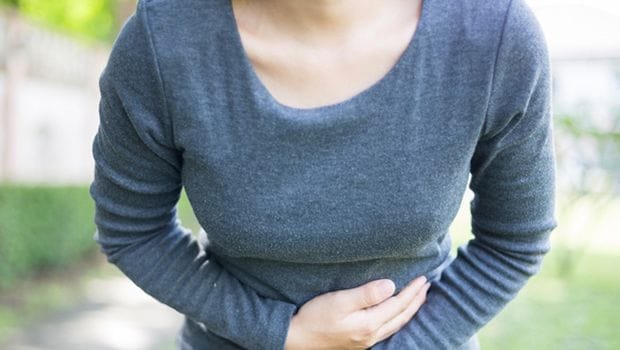For fit women with perfect hormonal balance, periods are meant to be an effortless and normal part of life. But unfortunately, an increasing number of women are experiencing mild to severe forms of pre-menstrual syndrome (PMS).

Pre-menstrual syndrome symptoms include abdominal bloating, cramps, moodiness, etc.
HIGHLIGHTS
- Change in diet and lifestyles can help to alleviate your PMS
- Consuming plenty of water can get rid of excess fluid in the body
- Calories and Vitamins should be consumed in the form of juices
From abdominal bloating, cramps, mood swings, depression and irritability to headaches, breast tenderness, water retention and constipation, approximately 20 % women experience these symptoms pre-menstrually. These symptoms can be attributed to fluctuating levels of hormones. For fit women with perfect hormonal balance, periods are meant to be an effortless and normal part of life. But unfortunately, an increasing number of women are experiencing mild to severe forms of pre-menstrual syndrome (PMS). The good news is that there is a lot you can do with your diet and lifestyle to alleviate your PMS.
1. 30 minutes of daily exercise goes a long way in reducing your stress, body weight and PMS. Exercising 5 days a week, round the year is much better than exercising those few days when you are dealing with the symptoms.
2. Yoga, stretching exercises, deep breathing and meditation, all go a long way in improving your symptoms.
3. Do not skip meals even if you are bloated. Consume high-fibre whole grains as they help relieve bloating, and also boost serotonin, the feel-good hormone.
4. Sugar craving is a common outcome of the hormonal imbalance. Avoid indulging in sugary foods. It will help you to lose weight or avoid any unnecessary weight gain. Also avoid artificial sweeteners.
5. Consume plenty of water even if you have water retention as it helps to get rid of the excess fluid. Restricting water intake will worsen the situation. Drink plenty of plain water, nariyal pani, nimboo pani, buttermilk etc. Stay off colas, carbonated drinks, juices.
6. Limit salt intake as it worsens water retention and bloating. Don't reach out for that bag of chips, crackers, namkeens, instead grab a handful of unsalted nuts.
7. Avoid alcohol, cigarette smoking and caffeine as they disrupt sleep and aggravate PMS symptoms.
8. Get your daily dose of vitamins, minerals, fibre and antioxidants by including plenty of fruits and veggies, the more colorful your plate, the better.
9. Don't drink your calories and vitamins, eat them. Whole foods are better than juices.
10. Though it is always better to get your nutrients from food, supplements may be necessary. Many studies suggest that calcium helps to reduce PMS symptoms. An intake of 1000-1200 mg calcium a day is beneficial which is difficult to obtain from diet. Alongside calcium, adequate Vitamin D is also essential for its absorption. B-complex vitamins especially B1, B2 and B6 help to tackle the symptoms. An intake of 400 mg of magnesium helps to control mood swings, bloating and water retention too. Iron supplements are necessary if you are a vegan to make up for your monthly loss.
It is advisable to consume a healthy diet, exercise regularly , take supplements regularly and adopt an overall healthy lifestyle all month and all year to prevent PMS rather than adopting these measures when the symptoms surface.
DoctorNDTV is the one stop site for all your health needs providing the most credible health information, health news and tips with expert advice on healthy living, diet plans, informative videos etc. You can get the most relevant and accurate info you need about health problems like diabetes, cancer, pregnancy, HIV and AIDS, weight loss and many other lifestyle diseases. We have a panel of over 350 experts who help us develop content by giving their valuable inputs and bringing to us the latest in the world of healthcare.














